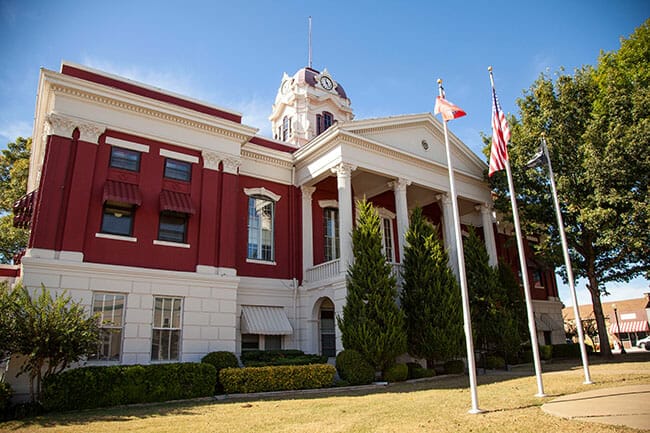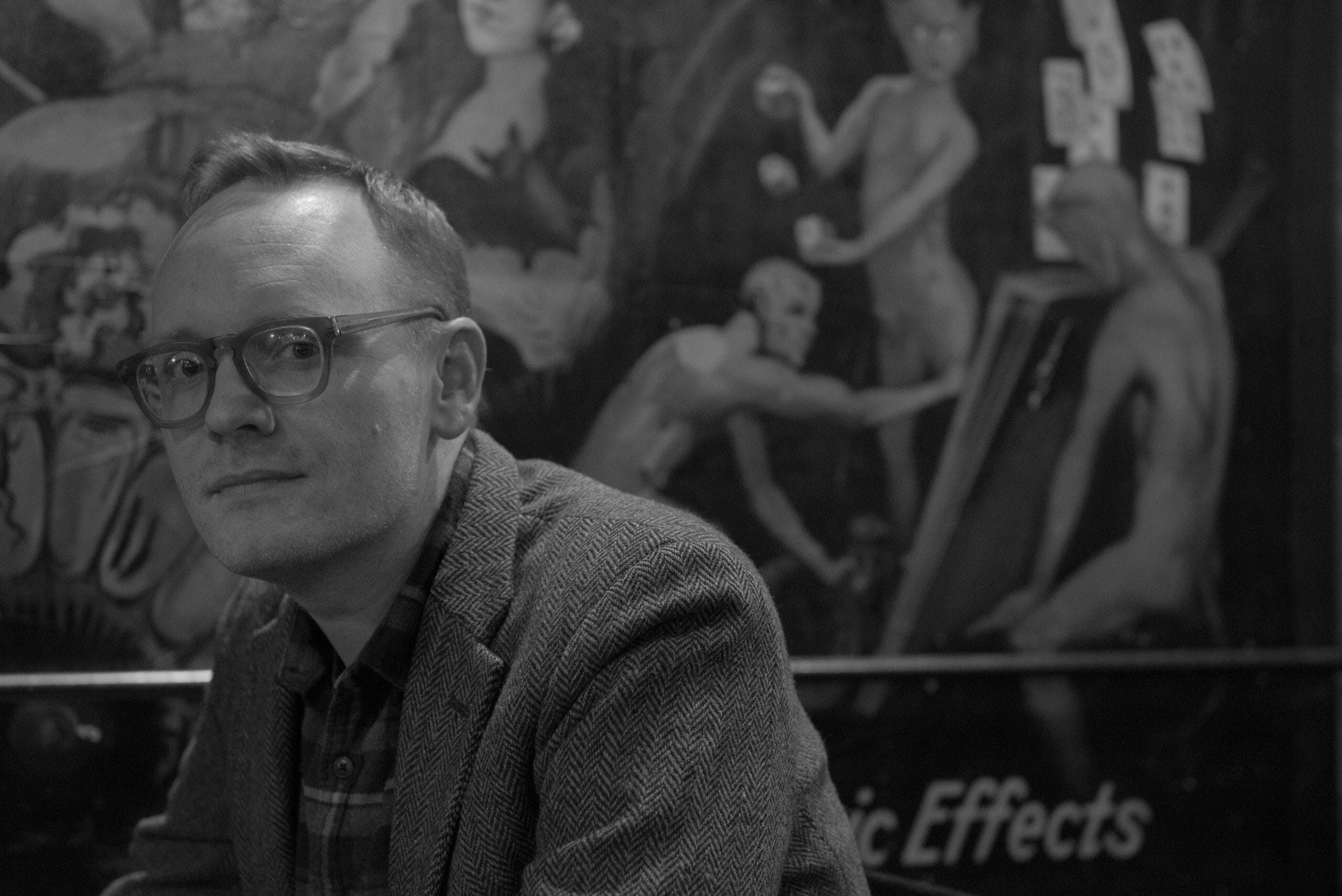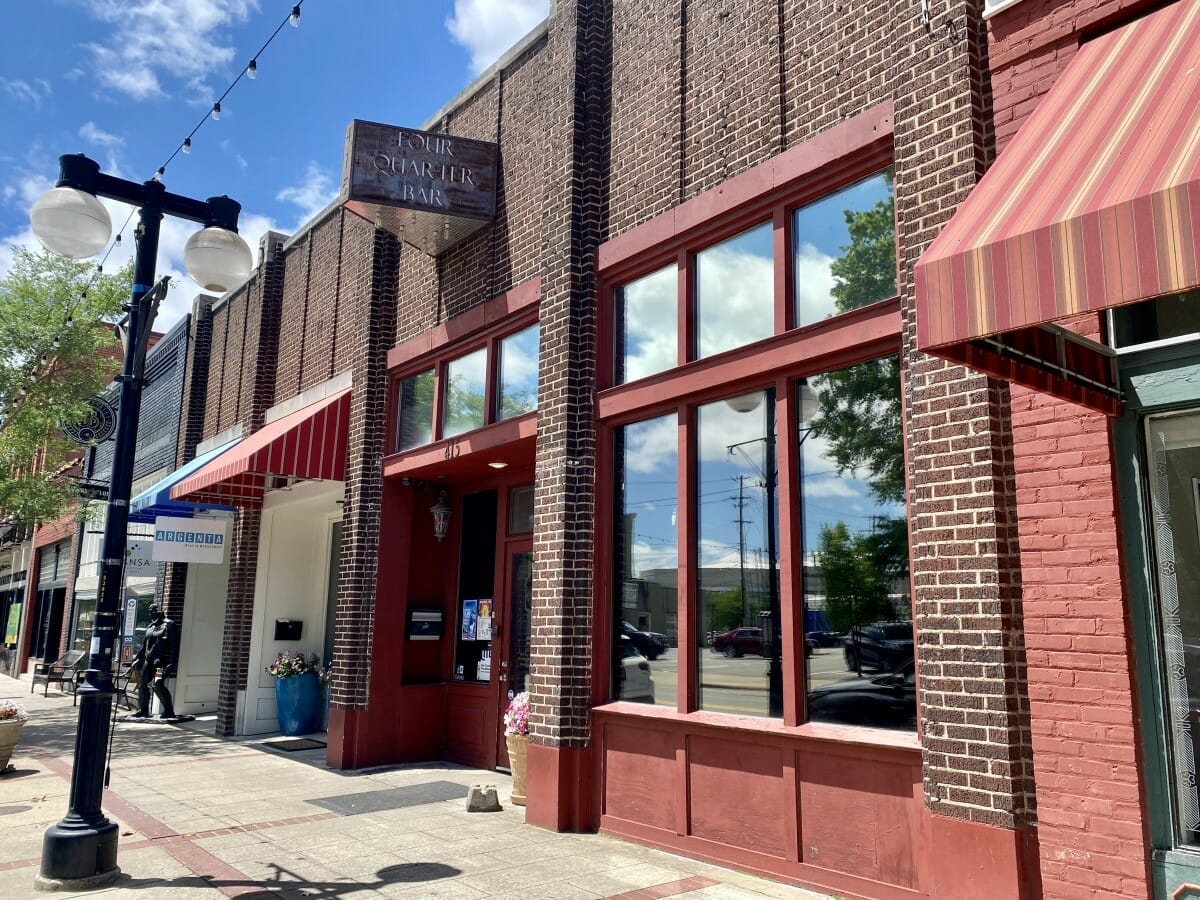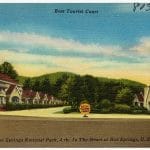

Uh oh...
It appears that you're using a severely outdated version of Safari on Windows. Many features won't work correctly, and functionality can't be guaranteed. Please try viewing this website in Edge, Mozilla, Chrome, or another modern browser. Sorry for any inconvenience this may have caused!
Read More about this safari issue.

In the process of writing a non-fiction book about the heyday of Hot Springs, author and native David Hill learned something about storytelling and truth.
“The Vapors,” a tale of “a Southern family, the New York mob, and the rise and fall of Hot Springs, America’s forgotten capital of vice,” is Hill’s ode to his own family’s complicated connection to the history that some might rather forget.
As his website summarizes it, “gangsters, gamblers and gamines: all once flocked to America’s forgotten capital of vice, a place where small-town hustlers and bigtime high-rollers could make their fortunes, and hide from the law. The Vapors is the extraordinary story of three individuals – spanning the golden decades of Hot Springs, from the 1930s through the 1960s – and the lavish casino whose spectacular rise and fall would bring them together before blowing them apart.”

Hollis and Hazel Hill, courtesy of Larry Hill
Hazel Hill, one of the central characters in the book, is Hill’s paternal grandmother, who died in the early ’90s. While he and his sister spent a lot of time with her growing up, she didn’t tell the stories he recounts in “The Vapors.” He learned more of them from his father, which spurred the subsequent intensive research he conducted to complete the book.
“I always knew bits and pieces of Hazel’s life,” he said. “I honestly don’t think I know the whole story now; I don’t think anyone does.”
He explained that in family history, there is often not a lot of documentation. “It is oral history, mythology passed from generation to generation,” he said. “Sometimes I could corroborate, sometimes I couldn’t; I had to take it on faith.”

Hazel Hill and her three sons, courtesy of Larry Hill
Because there are multiple versions of stories, he said it was sometimes hard to separate fact from fiction. “I didn’t go to school for journalism, and I’m not a historian, but I wanted to write a book that was true,” he said. “The experience of writing this book taught me how much folly there is in that pursuit. Even when I was reading a transcript of a secretly recorded conversation, I still don’t know if what they are saying is true. They may be lying to each other.
“It haunted me,” he said. “I felt bewildered by how difficult it was to really know something.”
He explained that while some people he interviewed still wanted anonymity all these years later, he didn’t want the book to come across as overly dramatic. “The stakes still feel that high for some people,” he said. “They worry what others will think, that it will reflect poorly on the reputation of people who still live there.”
In fact, Maxine Jones, a famed Hot Springs brothel owner, wrote a tell-all book in the ’80s, in which she changed everyone’s names. Hill said there is a keyed copy of “Call Me Madam” that gets passed around town.
“I get the sense that people who write memoirs are really telling tales out of school,” Hill said. “What allowed me to do it, I don’t live there anymore, I don’t have to experience the day-to-day. The general sense is you shouldn’t tell these stories.”
But he doesn’t have regrets for writing “The Vapors.” “I’m glad that I told this story,” he said. “It’s a very rich, important history. Hot Springs played an important role in American culture. It played a small, but important role in a lot of major events. People have said, ‘Wow. I never knew this. How could I not know this?’ Hot Springs didn’t want the story told for so long. So the story was in real danger of never being told. The story was in danger of vanishing.”

Leo McLaughlin driving his horse and buggy through Hot Springs, courtesy of Wayne Threadgill
He said others feel similarly. “By and large, people were glad to see this book published,” he said. “It’s giving Hot Springs its well-deserved moment in history. I’m proud to put Hot Springs back into the historical canon of mid-century America. The history of gambling in the United States, of organized crime, but also of popular culture.”
Hill is proud of what Hot Springs is today. “It was having an identity crisis when I was growing up,” he said. It knew it had to depend on tourists, had to be a resort, had to attract families. Now it has embraced the arts, it knows what it is. It’s bringing people downtown. The buildings are all still there. Hot Springs is leaning into its strong suits now – its art community, bike trails, bringing conventions back.
“It is such a great place culturally – a hidden gem. It’s unexpectedly charming. A lot of people go there trying to get the last national parks stamp. They don’t expect much, but they leave singing its praises.”
Hill’s book is optioned for a TV series, which he hopes materializes, as he “would love to dig deeper, to go a bit longer on this tale.”

As with everything else, COVID-19 put a damper on the book’s publication. “I didn’t get to go to Arkansas to celebrate with people who helped me,” he said. “I look forward to the day when I can come down to Arkansas and sign books and talk about the book.”
In the meantime, “The Vapors” may be purchased through vendors at this link: https://www.davidhillonline.com.
Cover photo of David Hill by Pete D’Amato
Join the Conversation
Leave a Comment
One response to “‘The Vapors’ Tells Hot Springs Story Some Wish to Forget”
 Leave a Reply
Leave a Reply
We do the work.
You check your email.
Sign up for our weekly e-news.
Get stories sent straight to your inbox!









 Leave a Reply
Leave a Reply
[…] To learn more about gangsters in Hot Springs, read David Hill’s account in The Vapors. […]